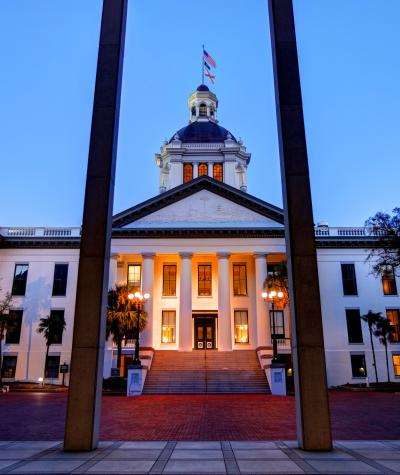In 2018, Florida voters overwhelmingly supported Amendment 4, restoring the right to vote to over a million residents with past felony convictions.
On June 28, 2019, Florida Governor Ron DeSantis cut that momentous democratic act off at the knees by signing into law SB 7066, requiring payment of all associated outstanding fines, fees, and restitution to qualify for voting rights restoration.
The bill will likely disenfranchise hundreds of thousands of Floridians with past convictions. CLC has filed a lawsuit challenging the constitutionality of the statute.
SB 7066 erects an unconstitutional barrier to the right to vote by conditioning the right to vote on wealth. The impact is simple: those with the financial ability to pay these fees will have their rights restored, while those without financial means will remain disenfranchised, sometimes permanently.
Discriminating between voters based on wealth violates the Fourteenth Amendment. Conditioning the right to vote on payment on fines and fees is an unlawful poll under the Twenty-Fourth Amendment.
SB 7066 was also hastily imposed and will likely create electoral dysfunction.
As a practical matter, it will be very difficult for people with past convictions to determine if they are eligible to vote. The law is unclear about which fines must be paid to regain one's right to vote and provides no mechanism for distinguishing between disqualifying and non-disqualifying financial penalties.
And while the statute provides for an updated state voter registration form, the form does not specify the newly created eligibility requirements to vote.
SB 7066 also subjects individuals who register in error to the threat of criminal prosecution. The vagueness and ambiguity of the law, in addition to the risk of criminal prosecution, only increase the unconstitutionality of SB 7066 in violation of due process.
CLC represents Bonnie Raysor and Diane Sherrill in the case.
Ms. Raysor, a resident of Boynton Beach Florida, has a prior felony conviction, but thought she would regain her right to vote following passage of Amendment 4. Under SB 7066, however, Ms. Raysor must pay up to $4,260 in outstanding fines and fees before she can vote. Under her current payment plan, she will not be able to vote until 2031.
This new law violates the First, Fourteenth, and Twenty-Fourth Amendments.
CLC is challenging the law on behalf of Raysor, Sherrill, and all those who will be denied the right to vote because of outstanding fines, fees, or restitution.
Florida should focus on improving the integrity of our elections, not silencing the voices of hundreds of thousands of citizens.
Read more about this case, and read more about Ms. Raysor’s story.
This post was written by Aaron Carrell, a 2019 CLC Hinckley intern, and student at the University of Utah.
